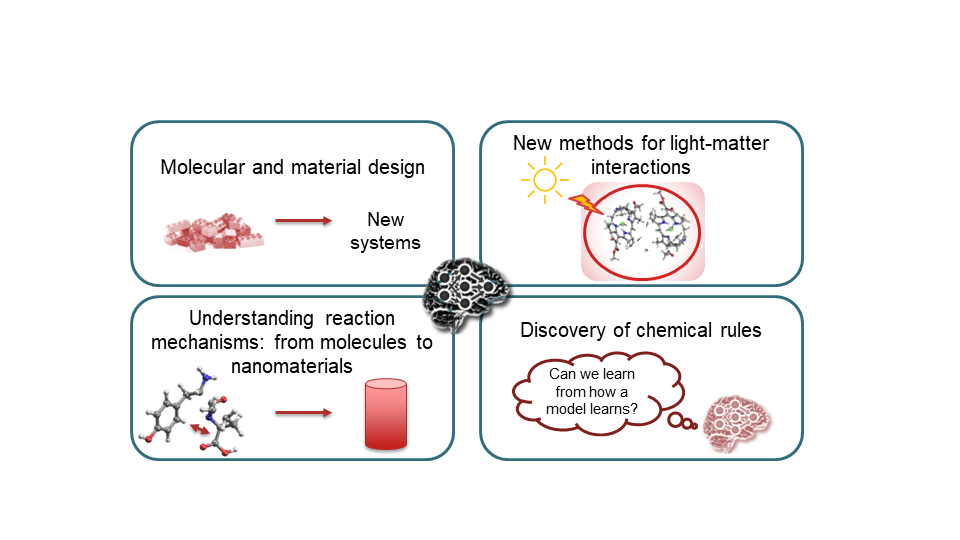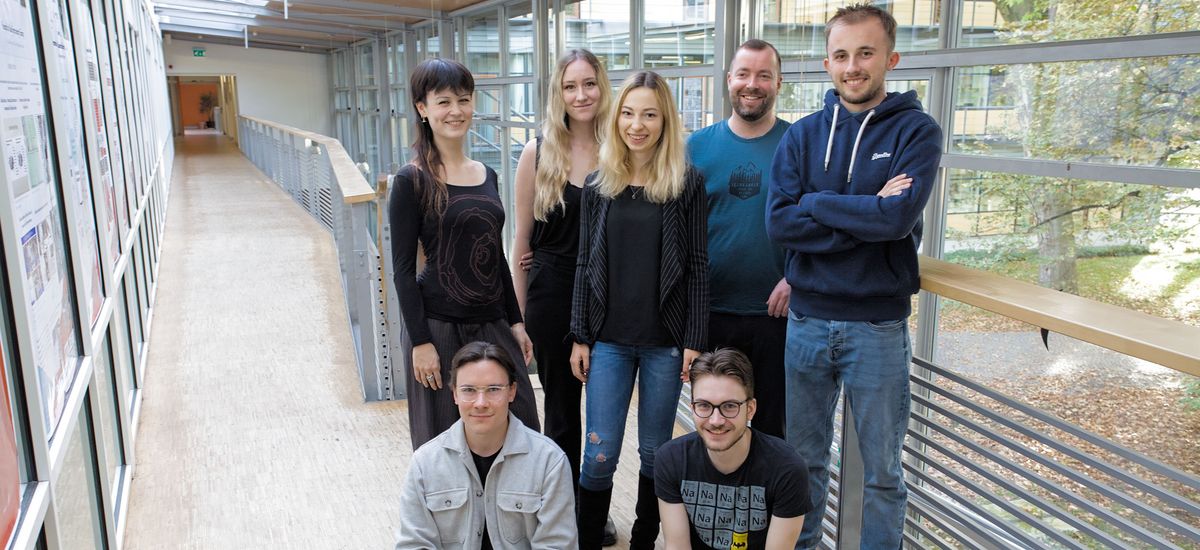Juniorprofessorship Westermayr
News
Team
Introducing the junior professorship group.
Research
The group develops and uses unsupervised, supervised and reinforcement learning to advance the modeling and design of new molecules and materials.
Projects
The design of new materials can be driven with unsupervised machine learning (ML), such as generative learning. Here, a model can learn from a set of structures and can predict new ones that have never been seen before but have similar properties. Combined with predictive models, molecules can be created that have optimized properties. These techniques should be applied to design novel organic, inorganic, and hybrid systems that could serve as, e.g., building blocks for organic electronics, catalysts or inhibitors for certain reactions.
Light is ubiquitous. Thus, it is probably not surprising that nature and life as we know it inherently depends on light-induced reactions. Yet, it is extremely difficult to study light-matter interactions and to unravel mechanisms of light-induced reactions. With the help of ML, new methods will be developed that can accelerate the simulation of photochemical reactions and can provide access to properties that cannot be computed with traditional quantum chemical methods.
With the help of predictive, supervised ML models, we want to understand mechanistic details of reactions of molecules. One particular focus is the self-assembly of molecules. Self-assembly is the organized formation of highly-ordered structures or patterns from molecular building blocks. While this reaction can be useful to form functional nanomaterials, it also takes place in the human body and can lead to the aggregation of peptides and proteins, which plays a role, for instance, in Alzheimer’s or Parkinson’s disease.
Due to the increasing amount of data that becomes available, new techniques are needed to extract information. We will use unsupervised learning to extract information hidden behind the complexity of data. In addition, we will use tools from explainable artificial intelligence to better understand how a ML model learns – paving the way towards the discovery of new chemical rules still hidden from us.
Publications
Teaching
Module Bachelor in Chemistry
Open Positions
The group welcomes research interns, bachelor's or master's students to conduct their thesis. To discuss possible topics, please reach me via my office hours. Currently, no open positions are available for PhD or PostDocs. If you cannot find what you are looking for, please do not hesitate to contact me - there may be other ways like scholarships to work with us.



